How to Behave Online | Online Etiquette
I have been dying to work on an article capturing the idiosyncrasies of online behaviour and the psyche behind online communication. In capturing a few personal experiences, I have indirectly sought to draw your attention to a few internet etiquette rules.
 Here are a few of my pet peeves on the types of written behaviours that could either split your sides or leave you appalled.
Here are a few of my pet peeves on the types of written behaviours that could either split your sides or leave you appalled.
Traditional to Contemporary
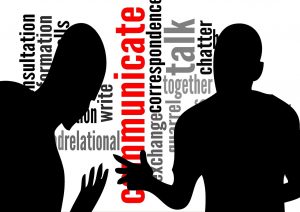 In the words of Yuval Noah Harari, our entire reasoning for creating language in its various forms is based on our inherent need to gossip. From the traditional practice in olden times of leaving paintings and engravings on cave walls to contemporary driving of emoticons to convey a message, we have come full circle with the help of technology. The basis of communication, conventional or modern, remains the same – that is, to express and share.
In the words of Yuval Noah Harari, our entire reasoning for creating language in its various forms is based on our inherent need to gossip. From the traditional practice in olden times of leaving paintings and engravings on cave walls to contemporary driving of emoticons to convey a message, we have come full circle with the help of technology. The basis of communication, conventional or modern, remains the same – that is, to express and share.
 Remember the time in the bygone past when you’d choose your words with care while communicating – over a long distance – because it took longer time and effort to place that call or write that postal letter or word that limited telegram. The cost was a significant factor, too, that kept you in check. International correspondence would, apart from costing a bomb, take months to have an effect as it took inordinately long to get your note across the seven seas. Snail mail, so it was aptly termed.
Remember the time in the bygone past when you’d choose your words with care while communicating – over a long distance – because it took longer time and effort to place that call or write that postal letter or word that limited telegram. The cost was a significant factor, too, that kept you in check. International correspondence would, apart from costing a bomb, take months to have an effect as it took inordinately long to get your note across the seven seas. Snail mail, so it was aptly termed.
Do you recall the letter formats in your heyday, ones that were too elaborate for comfort? Was it a formal letter or semi-formal? A business letter or a block style letter? A complaint letter or an inter-office-memo? Well, it’s a relief that these styles have now ceased to exist – with emails and instant messaging taking roost.
On the subject of email, even these were once crafted with salutations as “Respected Sir” and concluded with exaggerated formal phrases like “Yours faithfully” before the signature of “Yours truly”! Some institutions, especially government and semi-government, still follow the rigorous old-style communication but overall, its use has diminished to a large extent.
Netiquettes
 Technology has made it faster and easier to sieve through verbiage. It appears that there is no consensus in the decorum of modern communication or internet etiquette. Everyone seems to have developed their own manner of online etiquette. Some are excessively casual in official email interaction while others overly stilted in even light-hearted WhatsApp messaging.
Technology has made it faster and easier to sieve through verbiage. It appears that there is no consensus in the decorum of modern communication or internet etiquette. Everyone seems to have developed their own manner of online etiquette. Some are excessively casual in official email interaction while others overly stilted in even light-hearted WhatsApp messaging.
Whatever be it, there are unwritten rules when it comes to netiquettes. Unfortunately, because they are unwritten, not many follow the rules of writing.
Well, here are some of my observations of online behaviour which I’ve always wanted to address. Perhaps they hold true with you as well.
Pesky “one-word” Texts
 Your first “Hey” or “Hello” was to get my attention, wasn’t it? Am cool with that and hence responded with a “Hi” expecting the next message to be about the purpose of the communication. To my dismay, I see single-line texts like,
Your first “Hey” or “Hello” was to get my attention, wasn’t it? Am cool with that and hence responded with a “Hi” expecting the next message to be about the purpose of the communication. To my dismay, I see single-line texts like,
“Are”
“You”
“Free”
“Tonight?”
The four words have been written in four different lines! Why wouldn’t you take an extra minute to type the entire sentence thus,
“Are you free tonight?”
It’s not just about frittering away my time but yours as well. Besides, my hard-pressed ears would thank you for the reduced number of unpleasant pings. The sentence structure also seems thwarted, don’t you think? I mean, imagine if you were to write those four words in a notebook in Language class – would you have written them in four separate lines?! If written in a single line (or sentence) like the example below, the text recipient would also be relieved if you went a step ahead and indicated it this way, ,
“We are planning to go to the bar today.
Are you free tonight?”
Such a text allows me to provide an informed response to your question. For instance, I could be free – for a call, but not free to step out to the bar.
While texting has become easy and instant, it doesn’t hurt to put some thought behind what you want to communicate effectively. Be sensitive even to those who are close to you, they who are polite not to reprimand you on your text etiquette.
Group Free for Alls | Group Text Etiquette
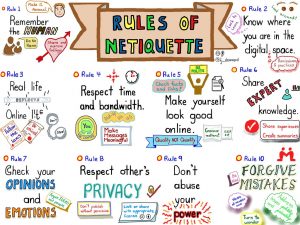 Quite often you tend to read the headline of a post and start propelling your comments in a rush. In a bid to outdo the others in terms of speed, you could make sorry gaffes in the bargain. Wouldn’t it be prudent to make an effort to read through a post/ article in detail, before pointing metaphorical fingers in disagreement at a mere headline?
Quite often you tend to read the headline of a post and start propelling your comments in a rush. In a bid to outdo the others in terms of speed, you could make sorry gaffes in the bargain. Wouldn’t it be prudent to make an effort to read through a post/ article in detail, before pointing metaphorical fingers in disagreement at a mere headline?
Group members tend to engage in aimless conversations and sometimes even spats over proving their point without comprehending the other’s point of view. It would do well for them to step back, breathe a bit and exercise maturity and group text etiquette.
Text Spam
 You share your thoughts with a select group of people who have mutually agreed to be a part of that list. However, spamming them every day with images of “Good Morning” or “Happy Thursday” or “Yay, it’s Friday” without their consent is a complete no brainer. Also sending wishes 365 days of the year pressurises the other into replying.
You share your thoughts with a select group of people who have mutually agreed to be a part of that list. However, spamming them every day with images of “Good Morning” or “Happy Thursday” or “Yay, it’s Friday” without their consent is a complete no brainer. Also sending wishes 365 days of the year pressurises the other into replying.
The reverse can also bully you into replying to greetings, received for every conceivable festival, you are so ridden with guilt that you stay up hours longer only to respond to the arbit wishes sent on a whim. The result is a sleep-deprived you. Quite often, these greetings won’t even come from close family members or buddies who you grew up with but oddly, from the less known people in your precinct.
Granted that you indulge in sending forwards during your free hours, but how could you be sure that the recipient is as free as you? There are pings from different parts of the globe when you are fast asleep or when you’re trying to catch those extra winks at the crack of dawn. While it’s their morning, it could be your midnight or vice versa.
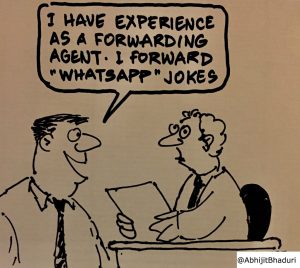 What’s the point of the work out anyway – of receiving forwards or responding to arbit chats or messages on Messenger for instance? Do you have to prove your undying friendship to those who picked you from the internet because they decided yours was a pretty face? Perhaps they wished to promote their Page or restaurant or service which could be justifiable to an extent. What is the point, however, in sending flowery daily greetings to ones you barely know? Some send snow angels, even senior “uncles” indulge in mindless shares. Or pink ribbons to fight for a cause, but how would NGOs truly be supported by mere ribbon shares? Will your (or their) mornings be better with a multitude of flowery images? Seriously, tell me how.
What’s the point of the work out anyway – of receiving forwards or responding to arbit chats or messages on Messenger for instance? Do you have to prove your undying friendship to those who picked you from the internet because they decided yours was a pretty face? Perhaps they wished to promote their Page or restaurant or service which could be justifiable to an extent. What is the point, however, in sending flowery daily greetings to ones you barely know? Some send snow angels, even senior “uncles” indulge in mindless shares. Or pink ribbons to fight for a cause, but how would NGOs truly be supported by mere ribbon shares? Will your (or their) mornings be better with a multitude of flowery images? Seriously, tell me how.
Would it seriously benefit you in appeasing tons of followers who could either be out of work or have work but lack sufficient responsibility? Will they sit by your hospital bedside when ill, or babysit your infant on your day out?
At least if you put in that extra work on an official presentation, it could increase your prospects for promotion. Get the drift?
On the other hand, an occasional online “time pass” could be acceptable, especially if you’re stuck at an airport in transit and have nothing to pass your time with. Personally speaking, I’d rather check out airport stores in transit, glimpse through online news, catch a bite at a café, glance through my email, listen to music, solve a crossword or play around with MagoVideo.
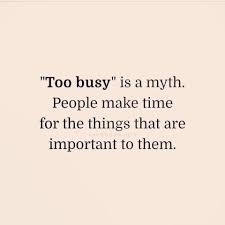 You could also be among those conveniently busy or unbusy persons, too busy to read the poem composed by a friend, claiming a hectic work schedule. Yet, within minutes, there comes a forward from you right during your work hours. Isn’t that duplicitous? To be too busy to reply to honest communication but conveniently free for only your amusing jokes. Well, there are a set of internet etiquette rules to be followed if you want social media to work for you.
You could also be among those conveniently busy or unbusy persons, too busy to read the poem composed by a friend, claiming a hectic work schedule. Yet, within minutes, there comes a forward from you right during your work hours. Isn’t that duplicitous? To be too busy to reply to honest communication but conveniently free for only your amusing jokes. Well, there are a set of internet etiquette rules to be followed if you want social media to work for you.
Group Mania
 Another annoying online exploit is to receive duplicate forwards, those posted in a Group and those sent privately as well. The same forwards/ greetings are received twice. So, while you’ve responded in a Group with a “Thanks, wish you a Happy Diwali!” or a “Merry Christmas!”, you’re compelled to say it all over again in response to the private greeting too. Well, it’s nice to send/ receive personalised messages but if you decide to engage in greeting exchange at all, doing so annually or bi-annually would give your recipient some reprieve. Your victim, oops beneficiary, could have a thousand additional contacts in his/ her phone to imagine that yours is the only one. Besides, common images are easily available on Google if s/he wants one. A text message – in words – certainly scores over an image even if it’s said that a picture speaks a thousand words.
Another annoying online exploit is to receive duplicate forwards, those posted in a Group and those sent privately as well. The same forwards/ greetings are received twice. So, while you’ve responded in a Group with a “Thanks, wish you a Happy Diwali!” or a “Merry Christmas!”, you’re compelled to say it all over again in response to the private greeting too. Well, it’s nice to send/ receive personalised messages but if you decide to engage in greeting exchange at all, doing so annually or bi-annually would give your recipient some reprieve. Your victim, oops beneficiary, could have a thousand additional contacts in his/ her phone to imagine that yours is the only one. Besides, common images are easily available on Google if s/he wants one. A text message – in words – certainly scores over an image even if it’s said that a picture speaks a thousand words.
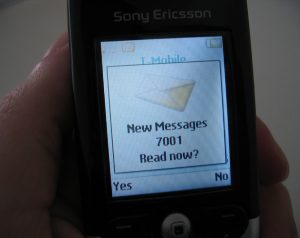 Groups are also known for their propensity to multiply a single greeting 500 times. Send a birthday wish on a group, and be assured of a weeklong fusillade of pings. Somehow, group wishes are devoid of warmth. You’ll even notice a category of group members who will make it a point to post their personal comments to you on a group consistently. Often at a loss at why people resort to a public show of what could’ve been a one on one chat, I came to recognise their need for solidarity from the others. The need to let others notice their largesse is perhaps what drives people like cows to a shed—with a typical herd mentality or in other words, crowd psychology.
Groups are also known for their propensity to multiply a single greeting 500 times. Send a birthday wish on a group, and be assured of a weeklong fusillade of pings. Somehow, group wishes are devoid of warmth. You’ll even notice a category of group members who will make it a point to post their personal comments to you on a group consistently. Often at a loss at why people resort to a public show of what could’ve been a one on one chat, I came to recognise their need for solidarity from the others. The need to let others notice their largesse is perhaps what drives people like cows to a shed—with a typical herd mentality or in other words, crowd psychology.
Even if you suppose the others are awake or “online” or “active”, they could jolly well be working on their digital exercises or an online promotionals. If the thought doesn’t occur to you – that their online activity could be official – think at least about the other members of the family who’d want to catch some sleep without media sounds as a result of your incessant messages. Text messaging etiquette must be in your internet rule book.
No Response Tirades
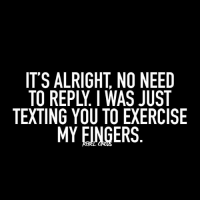 Tirades from men and women alike are common, when their messages get no response from you. Facebook Messenger or even WhatsApp for that matter, is an instance of such a medium. Here’s an example of how far from the truth, a “friend” was when she tried chatting with me on Messenger. I did respond with a “Hi” but just happened to recall that I had an official meeting waiting to start in a minute. When I returned to the chat an hour later, she was like a volcano spewing molten rocks. I was somewhat taken aback and had to explain that work had priority over personal conversations. Coming to think of it, why should any defensive rationale be provided at all? Perhaps someone came to the door, or the battery ran out, or the baby had to be fed. Give them a break.
Tirades from men and women alike are common, when their messages get no response from you. Facebook Messenger or even WhatsApp for that matter, is an instance of such a medium. Here’s an example of how far from the truth, a “friend” was when she tried chatting with me on Messenger. I did respond with a “Hi” but just happened to recall that I had an official meeting waiting to start in a minute. When I returned to the chat an hour later, she was like a volcano spewing molten rocks. I was somewhat taken aback and had to explain that work had priority over personal conversations. Coming to think of it, why should any defensive rationale be provided at all? Perhaps someone came to the door, or the battery ran out, or the baby had to be fed. Give them a break.
 Well, there are a zillion genuine reasons for not texting back as there are an equal number of trivial reasons too. The casual lazybones types, those lacking in discipline won’t text you back nor respond to your voicemail not even for days or weeks. It makes you want to holler back, but it’s best to maintain “social distancing” from these types. Not receiving a response could arise due to various reasons – busy, sick or even being no more. However, sheer lack of discipline in communication for no reason at all is a pointer of lack in other areas too. Of course, if it’s to your arbit forwards that you get no response don’t be resentful. In these days, it’s hard to keep a job and replying to arbit jokes would certainly take away a good post. How you behave or misbehave online is positively an indicator of a character flaw.
Well, there are a zillion genuine reasons for not texting back as there are an equal number of trivial reasons too. The casual lazybones types, those lacking in discipline won’t text you back nor respond to your voicemail not even for days or weeks. It makes you want to holler back, but it’s best to maintain “social distancing” from these types. Not receiving a response could arise due to various reasons – busy, sick or even being no more. However, sheer lack of discipline in communication for no reason at all is a pointer of lack in other areas too. Of course, if it’s to your arbit forwards that you get no response don’t be resentful. In these days, it’s hard to keep a job and replying to arbit jokes would certainly take away a good post. How you behave or misbehave online is positively an indicator of a character flaw.
Anniversary Reminders
 Many of us have got too dependent on social media reminders for birthdays and wedding anniversaries so much so that if they are missed, are likely to miss out on wishing our closest ones. Strange though it may seem, even technology won’t help the easygoing ones to keep pace with anniversaries. I mean that even if there is a reminder in their calendar, it won’t stop uninitiated fellas from dismissing that reminder.
Many of us have got too dependent on social media reminders for birthdays and wedding anniversaries so much so that if they are missed, are likely to miss out on wishing our closest ones. Strange though it may seem, even technology won’t help the easygoing ones to keep pace with anniversaries. I mean that even if there is a reminder in their calendar, it won’t stop uninitiated fellas from dismissing that reminder.
Do keep in mind that if these special ones haven’t missed a single special day of yours, online etiquette sure demands that you reciprocate. Moreover, wishes at the end of the day aren’t exactly cool unless of course, you’ve returned after a long day. Having said that, it’s better to catch someone late than not at all.
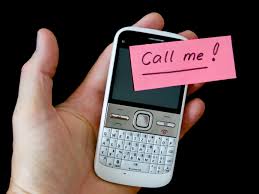 Phone calling – even for a few minutes – is more sincere than a written text containing a thousand prayers and blessings.
Phone calling – even for a few minutes – is more sincere than a written text containing a thousand prayers and blessings.
“Take care” is an overly exploited word; take care not to overuse it, keeping your wishes as genuine as you can.
Double Whammy
Haven’t you been guilty at times of double dosing someone – for instance, you send out a greeting to a relative, and soon after, your spouse follows suit. Isn’t it possible to restrict a greeting to just one a family instead of 5 members from the same family sending out 5 wishes to the same recipient?

“Happy Birthday Aunty!“
“Happy Birthday Sister!“
“Happy Birthday Mom!“
“Happy Birthday Sis-In-Law!“
Four wishes from the same family! Well, families who are spread across the globe could have good reason to send individual wishes. When they live in the same house it gives the recipient an impression that they are aren’t talking to each other. “Happy Birthday Sister, from Dia & Dale” is preferred to receiving one greeting from Dia and another from Dale. Double whammies aren’t exactly cool, nor are triple or quadruple ones.
Friendly Fiends
 It’s not new to encounter that “friend request” from someone “out there” seeking your friendship on Facebook. When you proffer a –
It’s not new to encounter that “friend request” from someone “out there” seeking your friendship on Facebook. When you proffer a –
“Hey, do I know you”?
Weren’t you surprised with the divergent creative answers you received?
“I wanna be your friend”,
“I kinda like your face which I find familiar”.
“No, you don’t know me”,
“How would I know if you know me?”
“No, but I know you”,
“Are you from Mumbai, I am from the city.”
“Facebook suggested you.”
“If you’re upset with my friend request, please ignore it”.
Ignore your request did you just say? Duh! Didn’t you want to be my friend in the first place and now suggest I ignore your request?! What kind of a double-faced friendship request is that?
 Talking of friend requests I received one today. As customary, I always ask if I knew the person wanting to befriend me or vice versa. It’s in your interest to know whether the request comes from a bum before accepting his request and too late to stop him from downloading and sharing your pictures to his legion.
Talking of friend requests I received one today. As customary, I always ask if I knew the person wanting to befriend me or vice versa. It’s in your interest to know whether the request comes from a bum before accepting his request and too late to stop him from downloading and sharing your pictures to his legion.
Well, in this case, the conceited man replied unflinchingly that he didn’t know me at all and if asked if I’d do him a good turn and follow his paintings. That was the catch I realised, for sending me a request, one that I am often a victim of – to promote a Page or sponsor a cause. Tired of pushing the other’s pursuits, I often miss pushing my own. Seemingly harmless, not every bimbo “out there” can be relied on to have a good sense as yours. Well here’s a screenshot of our chat, if that can prove my point; mind you that’s just a 10th of the expletives he hurled. Am sure you know that if there are sexual undertones or threats to inflict injury, there’s a Cyber Cell that can handle online offenders. It’s advisable to maintain screenshots of offensive chats, and get a profile check done through mutual friends. As for me, I have a few media friends who’d willingly proffer help. If you do too, keep them close.
 As far as the inarticulate ones, you would’ve come by a section of admirers who thrust those easy-to-push thumbs-ups and readymade GIFs to avoid having to think up smart words or lines in reply to your post. And when you reiterate with
As far as the inarticulate ones, you would’ve come by a section of admirers who thrust those easy-to-push thumbs-ups and readymade GIFs to avoid having to think up smart words or lines in reply to your post. And when you reiterate with
“Are you trying to say something but are at a loss for words?”
They get uptight and defensive.
Some get so carried away and voluble that, when you thank them in reply to their compliment, their “thank you’s” swing back and forth like a clock’s pendulum.
Aimless Chats
 Mr X: “Hey, you’re gorgeous!”
Mr X: “Hey, you’re gorgeous!”
Me: “Appreciate your compliment.”
Mr X: “Thank you.”
Mr X: “It’s a pleasure because you’re so lovely.”
Me: “Thanks again.”
Mr X: “Oh, no problem, when are you going to change your DP next?”
Me: “I don’t suffer from OCD!”
And the rest, quite obviously, is history.
Prefixes and Suffixes
 Odd that prefixes can be pretty ugly if there is a term like this. If you don’t accept a connection request, you’re considered “anti” social. If you refuse to reply to what you think is an aimless message, you’re considered “dis” agreeable. So much for prefixes.
Odd that prefixes can be pretty ugly if there is a term like this. If you don’t accept a connection request, you’re considered “anti” social. If you refuse to reply to what you think is an aimless message, you’re considered “dis” agreeable. So much for prefixes.
If that isn’t enough, there’s the suffix “dear” that is as outmoded as they come. “Good morning, dear“, “Yes, dear” and “No dear“. Oh, dear!
Cross-dressed Gender Greetings | Exercise Discernment

Can it get any worse than receiving a “Happy Fathers Day” message, especially if you are not a mother even? Or are a mother, but certainly not the sender’s by a mile. When you reiterate in shock, whether you resembled a father in any form, they retort in a dumb show of their upper vacancy.
“No dear, it’s for your loving father dear”.
You want to blurt that your father’s no more, but choose to stay mute for arguing with a fool shows there are two. Say a word in retribution, and they block you, hook line and sinker. Whatever for? To give you a reprieve from their own spamming?! Or to find your pragmatic questions too hard to digest?
Somehow, bird brains scare the daylights out of me as hollowness emits nothing. I mean, how can something emerge out of nothing. Empty upper storeys can only spell trouble, for whoever saw the chairman of any company engage in mindless chit chat. Coming to think of it not all birds are no-brainers, at least not eagles or macaws. For that matter, even a sparrow would deserve a pea brain considering its size. Come, come, let’s not digress into a topic that could be a blog in itself.
Come festival time, choose your greetings with care. Send your Diwali greetings to ones who celebrate the festival rather than dashing off a Good Friday wish to a Hindu Brahmin or a Mahashivratri greeting to a Born Again Christian. How to greet people and how to behave online is fundamentally about discernment than following any internet etiquette rules book.
Goddam Spam
 A surefire way of knowing if you’ve been spamming the others is from their lack of response to your posts or messages. A few may respond out of courtesy, but it would do well to know that this isn’t a reason to spam them some more. Do you honestly think that business persons, office goers or even homemakers have not much to do but admire images all day long or listen to your violin compositions or read your books all day long? Especially those images or songs or albums that are available at the asking on some social medium or the other, perhaps far better than yours? Ask, but don’t insist.
A surefire way of knowing if you’ve been spamming the others is from their lack of response to your posts or messages. A few may respond out of courtesy, but it would do well to know that this isn’t a reason to spam them some more. Do you honestly think that business persons, office goers or even homemakers have not much to do but admire images all day long or listen to your violin compositions or read your books all day long? Especially those images or songs or albums that are available at the asking on some social medium or the other, perhaps far better than yours? Ask, but don’t insist.
Strategic Coercion
 When you create broadcast lists in, say WhatsApp, your first message should be to ask for consent to receive links or messages from you. Use that message also to share why you want to engage in this exercise. It could be to stay connected or to share informative material. Whatever be it, consent is essential as it not only saves the receiver from being “spammed” but is an ethical communication etiquette.
When you create broadcast lists in, say WhatsApp, your first message should be to ask for consent to receive links or messages from you. Use that message also to share why you want to engage in this exercise. It could be to stay connected or to share informative material. Whatever be it, consent is essential as it not only saves the receiver from being “spammed” but is an ethical communication etiquette.
Should you get someone’s number, it is no reason to use it for your promotional activity. For that matter, meeting someone new doesn’t give you the right to even ask for his/her number unless s/he offers to share it.
“Spare my husband!”
 You want to cry out when your online friend shoves Page links for your relatives to follow. Next, they send your Far East cousin a friend request.
You want to cry out when your online friend shoves Page links for your relatives to follow. Next, they send your Far East cousin a friend request.
Why, my family barely knows you. Besides, you’re my friend and not my husband’s. And even if you were, was it to garner a following that you struck a friendship with him or was it to form a friendship bond genuinely? It’s appalling to see how saccharine some are, with vested interests and visibly not as sugary with the ones who genuinely are their life support. Be not an online petitioner, show self-esteem.
Symbolism in Chats
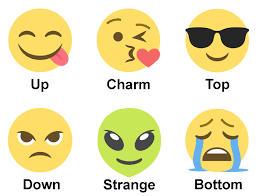 First came the emojis and then followed the emoticons, both serving the same purpose. Emoticons or emojis are lobbied in chats, and often indicate a finish or a near closure of a conversation.
First came the emojis and then followed the emoticons, both serving the same purpose. Emoticons or emojis are lobbied in chats, and often indicate a finish or a near closure of a conversation.
It could compare with the infamous ‘K’, which is also a popular conversation concluder. Quite candidly, textual replies could lend more substance to a chat than emojis alone. Yes, emojis do inject a brighter hue into a message but wouldn’t you be happier to receive a –
“Hey, Nandini! That was a brilliant rendition. Keep it up.”
Rather than a symbolic and what’s easy on the fingers – a mere thumbs up 👍
Abbreviated Chat or Spell Errors
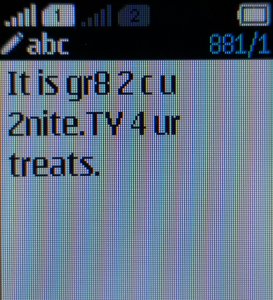 Somehow, there seems to be an uncanny correlation between seniors/ professionals and written texts vs emojis or emoticons. It’s curious how almost every qualified person in your phone book will write out texts or email, in full form at that. The brawny ones, on the other hand, would ask,
Somehow, there seems to be an uncanny correlation between seniors/ professionals and written texts vs emojis or emoticons. It’s curious how almost every qualified person in your phone book will write out texts or email, in full form at that. The brawny ones, on the other hand, would ask,
“Hey der, howz lyf” or
“Cum tom to meet ma gal” or
“K, tat’s fyn”.
How much harder would it be to say “that” instead of “tat”? Even though symbols have been made to emote human feelings, it can never fully replace the power of the written word. You can tell a beefy bouncer from say an investment banker from the manner in which s/he emotes/ writes.
And if, for “Good morning, Dia, how have you been”, you get a grim “Gm, all fine.” You feel like a COVID patient, coldly ostracised.
 Oddly (some) teenagers who use acronyms and abbreviated words often can go on for days messaging in what I’d term coded lingo. It’s apparent that they do not have concerns about wanting to save time, so why engage in an abbreviated language in the first place? Isn’t it a paradox to shorten a chat by using acronyms and then stretch a chat by going on all day long?
Oddly (some) teenagers who use acronyms and abbreviated words often can go on for days messaging in what I’d term coded lingo. It’s apparent that they do not have concerns about wanting to save time, so why engage in an abbreviated language in the first place? Isn’t it a paradox to shorten a chat by using acronyms and then stretch a chat by going on all day long?
What have you to say about the so-called “lingo” of many a performer, which I’ve come to ascribe as usually “horny”. This is a generalised observation going by the typical communication style of many, not applicable of course to all in the music world.
 While media professionals are obsessed with factual communication, kitty party homemakers make forwards their mantra. It’s a wonder how they fritter away a quarter of a day in reading fake news but won’t touch original newspapers with a barge pole.
While media professionals are obsessed with factual communication, kitty party homemakers make forwards their mantra. It’s a wonder how they fritter away a quarter of a day in reading fake news but won’t touch original newspapers with a barge pole.
Some teenagers will resort to only WhatsApp – even in the middle of an earthquake. Shockingly, it could well be teachers themselves who could ask, “How your doing?” where “your” is a second person possessive adjective and “you’re” is a contraction of “you are”.
 Don’t you lose it when they make loose talk over “loosing” their way over loose motions? Some go so overboard with getting “over bored” with life. Not forgetting the auto-correct blunders that make your public statements “pubic”.
Don’t you lose it when they make loose talk over “loosing” their way over loose motions? Some go so overboard with getting “over bored” with life. Not forgetting the auto-correct blunders that make your public statements “pubic”.
Honesty is still the best Policy.
It is easy to create an online persona that differs from your real-life identity. There’s no harm in doing so except that you must stay ahead, to keep track of your fibs if you ever happen to engage in them. In the early social media days, it was common for people to get caught if they sought sick leave and then unwittingly posted pictures of a picnic they’d been to the same day. Haven’t you heard of criminals getting caught similarly? Recovery agencies would know this only too well.
 That goes with exaggerated profile pictures that are far from the real you. Avoid wigs, ostentatious wear and such unless you’re an actor in a play. Dress up your display picture by all means, provided you are a reflection of the same “dp” in real life too.
That goes with exaggerated profile pictures that are far from the real you. Avoid wigs, ostentatious wear and such unless you’re an actor in a play. Dress up your display picture by all means, provided you are a reflection of the same “dp” in real life too.
In the modern-day, lies have evolved with time and come into play mostly when interacting on private messaging. If you’re too busy to read and respond to someone’s messages, then doesn’t the busy principle apply to you when sending the same person random messages? Two-faced conduct as this is likely to affect your relationships long term. It’s always good to follow a degree of netiquette guidelines to be taken seriously.
Maintaining social quid pro quo | How to Behave Online
 There is a different kind of currency that works on social media in the form of social media etiquettes. Haven’t you been a victim of the “like for like” scheme on Facebook? If you don’t engage in the fiasco of calling a nasty looking friend “Gorgeous”, you’re likely to lose that unattractive “friend”. Isn’t that shallow – to base as precious a bond as friendship with a superficial thing as a like for a like or lose a bond for lack of it? Sooner or later, you’d lose the ones who do “like” you for you and not for what you portray on social media.
There is a different kind of currency that works on social media in the form of social media etiquettes. Haven’t you been a victim of the “like for like” scheme on Facebook? If you don’t engage in the fiasco of calling a nasty looking friend “Gorgeous”, you’re likely to lose that unattractive “friend”. Isn’t that shallow – to base as precious a bond as friendship with a superficial thing as a like for a like or lose a bond for lack of it? Sooner or later, you’d lose the ones who do “like” you for you and not for what you portray on social media.
Ask a close relative of the person, and you’re likely to learn the real side vs the reel side. Have you wondered why online acquaintances will show so much online hospitality and exaggerated interest in you but will be reticent to invite you over for even a cup of tea? While they profess their love for their spouse from rooftops, or from the 20th floor of their highrise – what goes on behind their walls can you tell?
Some share sordid tales of their poor marital relationships privately, but the next moment their photos and adjectives would prove the exact opposite. I have been the recipient of many a call or a chat from one Nora about another Sharlet and then both are seen sitting pretty at a club without a care in the world. Compulsive double-crosser will find something wrong with all within their circus, oops circuit. Perhaps they can’t find new like-minded Janus-faced friends?
There is undue importance ascribed to likes and follower counts. While I have nothing against the system, I cringe at the few who blatantly misuse it.
And when you invite friends to follow your Instagram handle, for instance, the ones who jump up to assure their life long dedication to your account are often the ones who haven’t heard of Instagram even. Yet they make no show of their ignorance nor politely decline a “follow” request.
 While on the subject of followers, there’s a strategic lot who “follow” you only to be followed back. Some of your die-hard fans will perseverantly”like” every post of yours. And then vamoosh, they’re gone from your list of followers one day, leaving you to follow these unfollowers aimlessly. Some strategically follow you and when you are kind enough to follow them back, sneakily unfollow you. It’s odd for them to resort to such antics when a “mute posts/stories” option relieves them from seeing your posts often, instead of blatantly unfollowing or worse blocking you. Unless, of course, it’s Facebook which absolves both sides of follower counts if someone should decide to end a “friendship”. Unless you have an App that tracks your following, you can be made quite a fool of on Instagram.
While on the subject of followers, there’s a strategic lot who “follow” you only to be followed back. Some of your die-hard fans will perseverantly”like” every post of yours. And then vamoosh, they’re gone from your list of followers one day, leaving you to follow these unfollowers aimlessly. Some strategically follow you and when you are kind enough to follow them back, sneakily unfollow you. It’s odd for them to resort to such antics when a “mute posts/stories” option relieves them from seeing your posts often, instead of blatantly unfollowing or worse blocking you. Unless, of course, it’s Facebook which absolves both sides of follower counts if someone should decide to end a “friendship”. Unless you have an App that tracks your following, you can be made quite a fool of on Instagram.
It doesn’t matter whether you pursue this with random strangers or your close ones; there is a quid pro quo that needs to be honoured. This also applies to the ones who request you to follow them without returning the favour. And while we expect our near and dear ones to like our every post, they are under no obligation to do so. They have probably not come across your post, or they simply happen to disagree with your subject or don’t share your PoV. Perhaps they find your verbiage too lofty to hit a ‘like’ on your Facebook post. All of these reasons are valid, and there’s no reason to resort to infantilism like engaging in an ‘Internet katti’ because someone doesn’t “like” your post.
On the other hand, it’s strange how sending and receiving friend requests are as easy as a breeze. However, once they are connected most tend to sit pretty on your list with minimal or no engagement. Somehow, many assume that a Facebook connection gives them right to Messenger access. While a genuine chat is fine now and then, it is appalling to be the recipient of tons of random messages. Then there is someone who will proffer monosyllables like,
“Hi”
“Hey”
If you have to say something, why stick to one-word chats when you could go and say,
“Hi Jack, how have you been. It’s been a long time since I heard from you. Is all well? Do drop me a line in return.”
Continuing from the sub-topic, quid pro quo demands that the same goes with deactivation of your social media account – it’s recommended that you publish at least a line to the effect without disappearing into obscurity.
 Before I progress to the next point, it’s corny to play Miss Goody Two Shoes, going about liking anyone/ everyone’s posts to make yourself “like”able. This could apply to not just women, but men too. Liking a post, for that matter, may not necessarily mean anything as anyone can do that without even going through your post. Commenting is a higher form of communication, but even here, there are various types of comments. If you think that “Yay!” or “Hmm” or “Tx” are comments, think again. It’s better to write out your thoughts/ opinions clearly when you are collected, rather than seek refuge in half-baked GIFs.
Before I progress to the next point, it’s corny to play Miss Goody Two Shoes, going about liking anyone/ everyone’s posts to make yourself “like”able. This could apply to not just women, but men too. Liking a post, for that matter, may not necessarily mean anything as anyone can do that without even going through your post. Commenting is a higher form of communication, but even here, there are various types of comments. If you think that “Yay!” or “Hmm” or “Tx” are comments, think again. It’s better to write out your thoughts/ opinions clearly when you are collected, rather than seek refuge in half-baked GIFs.
Infantilism and Social Media Pranks
 The child in you has no place on social media, especially when you engage in behaviours like blocking someone for no rhyme or reason. Just unblocking them at a whim is undoubtedly not the right way to go about it. Well, if the person is a stalker, go ahead and block him lock, stock and two smoking barrels. Yes, it is your account, and you can do as you please—get on with the “block” heads.
The child in you has no place on social media, especially when you engage in behaviours like blocking someone for no rhyme or reason. Just unblocking them at a whim is undoubtedly not the right way to go about it. Well, if the person is a stalker, go ahead and block him lock, stock and two smoking barrels. Yes, it is your account, and you can do as you please—get on with the “block” heads.
A better way would be to conduct an open dialogue over the phone if a personal meeting doesn’t work. If this doesn’t work either, it makes sense to customise your settings, or just unfollow them or restrict them from viewing your profile. Of what use are friends who view all your shares but won’t let their arthritic finger to hit a “like” even accidentally? Especially, one-sided friends who seek all the support on their son’s performances when it suits them and then conveniently forget to reciprocate.
Being passive-aggressive on social media is not a colour that suits anyone. Just because I am upset with you, I will go out of my way to be publicly nice to someone you’re not fond of in a bid to spite you. Reread the line and know how puerile that seems, especially if you’re the one that’s guilty of the spamming.
Of course, if you are genuinely plagued or stalked on any of these media, there is the option of “report and block“. An algorithm ven decides that an “x” number of reportings could block the fake number/identity permanently.
Choosing a Single Medium
 If you are available on various social media platforms, it doesn’t mean that you’d want to hold separate conversations with someone on all platforms. If you’ve been kind enough to wish me “Happy Birthday” or talked about my feature on WhatsApp, I don’t want you to reciprocate on four mediums – that is, my Facebook timeline, Facebook Messenger, Instagram and WhatsApp as well. Just one medium is sufficient to convey a message. You will most likely have different people comfortable with different mediums. But it is a good practice to carry out a conversation with a single person on a single medium.
If you are available on various social media platforms, it doesn’t mean that you’d want to hold separate conversations with someone on all platforms. If you’ve been kind enough to wish me “Happy Birthday” or talked about my feature on WhatsApp, I don’t want you to reciprocate on four mediums – that is, my Facebook timeline, Facebook Messenger, Instagram and WhatsApp as well. Just one medium is sufficient to convey a message. You will most likely have different people comfortable with different mediums. But it is a good practice to carry out a conversation with a single person on a single medium.
I belong to the old school of thought when it comes to prefer a phone call over messaging on special occasions. Or meeting in person vs calling. Have you known of persons who will incessantly message you, but won’t answer your call? Like the case of a local from Goa who’d keep messaging me relentlessly and when you called back to wrap up the matter over the phone, he’d excuse himself as riding a bike! How on earth did he manage that feat, of texting and biking at the same time but reluctant to take your call?
Social Media Platforms
![]() Knowing how to choose various social media platforms will enable active engagement. LinkedIn is for professional networking. Twitter is a form of microblogging – for your research promotion or reaching a wide range of people through short tweets. Quora is a question and answer platform, with a different perspective. Pinterest is a social network for sharing images and finding new ideas in the form of “Pins”.
Knowing how to choose various social media platforms will enable active engagement. LinkedIn is for professional networking. Twitter is a form of microblogging – for your research promotion or reaching a wide range of people through short tweets. Quora is a question and answer platform, with a different perspective. Pinterest is a social network for sharing images and finding new ideas in the form of “Pins”.
There is no doubt that social media and online engagement fostered by technology seems to be ahead of man. We’ve discovered ways to connect better with our near and dear ones and finding more interesting people worldwide. Yet, we’re still coming to grips on how to use this technology effectively and optimally. The ‘instant’ part of it has solved many issues but brought on an equal number of dilemmas.
It’s imperative that we understand and align ourselves with internet etiquette rules and remind ourselves that social media is not a monologue, but a dialogue.
I hope this article helps you in identifying and correcting some of your internet etiquette patterns that you may recognise in the points above. Let me know in the comments section what are your idiosyncrasies about online behaviour that makes you grind your teeth or beam with gladness.
Use your online behaviour not to IMPRESS, but to IMPACT.





35 Comments
Carmelita, your post explaining in detail the basic etiquette we need to follow on Social media is so apt in the digital age we are currently living in and also because Social media is here to stay.
Priya
Thanks for your comment. That’s precisely why netiquettes ought to be in place because social media is here to stay.
Hey Carmelita!
I really loved the post! There are too many spammers going around on the internet sending random friend requests and then bugging you to follow or like their page. It gets to the point of annoyance and irritation. I can completely relate to feeling. Love your writing flow!
Thanks Namit 🙂
Very well written
Thanks Sushir.
Nice informative article👌
Thanks Edna, appreciate you taking the time to comment.
This article is a ‘must read’ for every Social Media user. ! ! !
Thank you Poonam! Am glad that you were finally able to post a comment.
Must read article
I agree, thanks
Really good article
Thanks Vijay
Really very well written article
Hi Sujay,
Many thanks for your comment. Do you want to subscribe to my blog for periodic updates.
Great article!
NZ comment, thanks Rhia; tested and it worked.
Great work Carmelita. All the Best!
Thank you Charlotte, for your comment that successfully came from Canada.
Proves that international regions aren’t restricted for comments. Afterall, mine is a secure site too.
Well said. Something that annoys me much is the unsolicited good mornings or TGIF I receive. Also, the reminders that a new month has begun gets my goat. As if I’m that dumb not to know when one month ends and another begins.
Comment from NZ, thanks Rosy; yes that too.
It’s a wonder there are so many immature forwards out there.
US IP Check
UK IP cheked and approved.
UK IP Check
Sweden IP Check
Sweden IP checked and approved.
Canada IP Check
Canada IP checked and approved.
NZ IP Check
NZ IP checked and approved.
India IP Check
India IP checked and approvd.
lovely article
Am super glad you were able to comment this time. Finally!
That you were from the U.K. shouldn’t have been an impediment for sure.